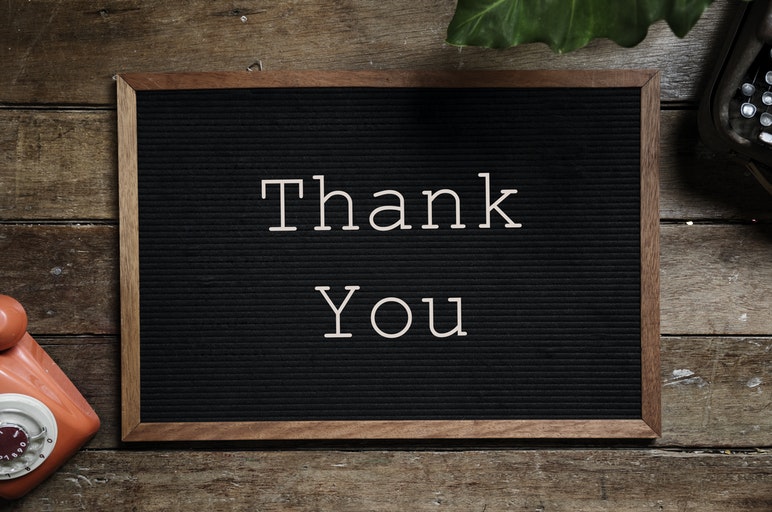
Parshat Sav introduces the laws of the “Korban Todah”- Thanksgiving offering. Rashi writes that the Todah offering is brought by "someone who experienced a personal miracle” (Vayikra 7:12). There are four situations for which one would bring this korban:
1) A sick person who has recovered and is now healthy again
2) One who crossed the sea and has returned safely
3) One who crossed the desert and has exited it safely
4) One who was in jail or captivity and has been set free
Each of these are considered to be dangerous and potentially life threatening situations. When the Bet Hamikdash was extant, anyone who emerged from one of those situations alive, and well, would bring a Korban Todah. Its’ purpose was to acknowledge that one’s salvation is only a result of God’s help, and to properly thank & praise God.
After the destruction of Bet Hamikdah, this method of thanking God was no longer an option. Hence, the Hachamim instituted a special blessing to express our thanks to God. This blessing is known as Birkat Hagomel. One should be meticulous in reciting this blessing when required, as it helps us to constantly remember God and see his guiding hand in our lives.
As the holiday of Pesah approaches, it seems that this message becomes even more potent. The mizmor which we read throughout the holiday describes each of the aforementioned situations and God’s subsequent salvation, after the people cried out for God’s help.
1) “All food was loathsome to them; they reached the gates of death… He gave an order and healed them; He delivered them from the pits”
2) “Others go down to the sea in ships, ply their trade in the mighty waters… He reduced the storm to a whisper; the waves were stilled”
3) “Some lost their way in the wilderness, in the wasteland; they found no settled place. … He showed them a direct way to reach a settled place.”
4) “Some lived in deepest darkness, bound in cruel irons… He brought them out of deepest darkness, broke their bonds asunder” (Tehillim 107)
The refrain is “Let them praise the Lord for His steadfast love, His wondrous deeds for mankind”.
Why do we read this mizmor on the holiday of Pesah? The mefarshim explain that when Bene Yisrael left Egypt, they experienced each of these situations and were ultimately saved by God.
1) They were ill and malnourished due to their cruel and harsh treatment by the Egyptians. Hazal tell us that when they reached Har Sinai, Hashem healed all of their ailments.
2) They crossed Yam Suf safely through Hashem’s miraculous intervention.
3) They traveled through the desert safely with Hashem’s guidance.
4) They were enslaved and stuck in Egypt, just as in a jail. Hashem brought ten plagues upon the Egyptians and led the Jews out of Egypt.
Each of these salvations were experienced by Bene Yisrael on a national level. As we reflect on this phenomenon, it is our responsibility to recognize the salvation that God performs for each of us on a personal level.
In the prayer of Modim we say that we thank God “for the miracles you perform for us daily”. What exactly are we referring to? Who merits to experience miracles on a daily basis?!
Based on the Rashi above we can understand the prayer very well. We are thanking God for each time in life that we find ourselves in a difficult and dangerous situation, and manage to emerge unscathed. Although we may be placed in thousands of such situations throughout our lives, it does not diminish the danger; it is just as real as the danger facing our ancestors in Egypt. Although God no longer performs open miracles (which go against nature), his salvation for us is just as powerful as the salvation of our ancestors in Egypt. The holiday of Pesah alerts us to recognize the true danger we face throughout life, and the infinite kindness and power of God which protects and saves us.
If one properly thanks God and acknowledges his involvement in their life, they will be deserving of future salvations. As well, if we thank and acknowledge God as a nation together, we will merit a national salvation with the coming of Mashiah speedily in our days. Amen
Rabbi Yaakob Savdie is an educator & Rabbi in the Sephardic Community of Brooklyn. He serves as a Rabbi at Congregation Ahaba Ve Ahva, where he gives shiurim, delivers sermons, and helps to guide the congregants. He also oversees the Post High School Program at Yeshibat Shaare Shaul (the Sephardic Rabbinical College) where he educates the young adults of the community, and teaches Gemara & Halacha. He received his semicha from Hacham Obadia Yosef ZS"L.







